7 Ways to Winter-Proof Your Car, According to Experts
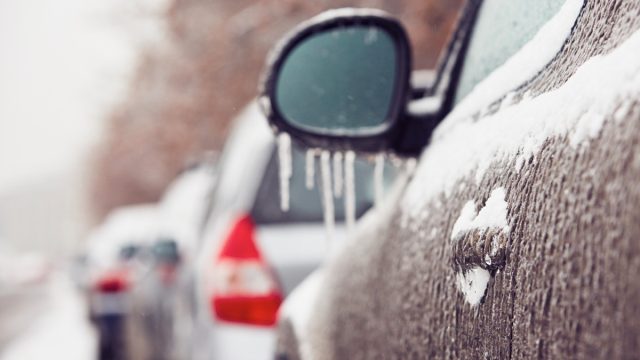
Many of us spend weeks or even months prepping our homes and yards for the colder weather. After all, simple tasks like cleaning out your gutters and sealing cracks can prevent costly damage and expensive bills from catching you off-guard when winter rolls around. But failing to give your car that same kind of care can create serious problems of its own. To help make sure your vehicle is ready for freezing temperatures and snowstorms, we talked to several automotive experts to get their best preparation tips. Read on to discover seven ways to winter-proof your car.
RELATED: 9 Essential Tips to Winter-Proof Your Home.
1
Give your windshield a once-over.
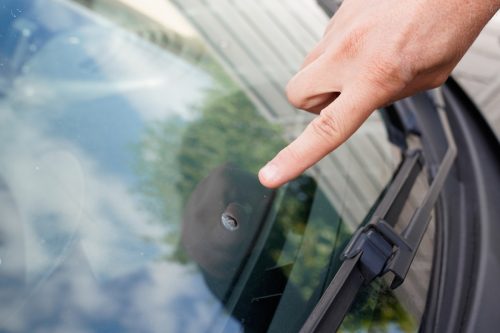
When winter comes around, even the smallest chips and cracks on your windshield can “turn into big headaches,” Tommy Patterson, vehicle expert and director for the Neighborly company Glass Doctor, warns. That’s why it’s important to inspect your glass for any issues before the season changes so that you can deal with the damage now.
“If you’ve got a minor crack, a repair is usually the way to go,” Patterson says. “But when that crack starts spreading, it’s time to talk about windshield replacement.”
2
Top up the fluids in your car.
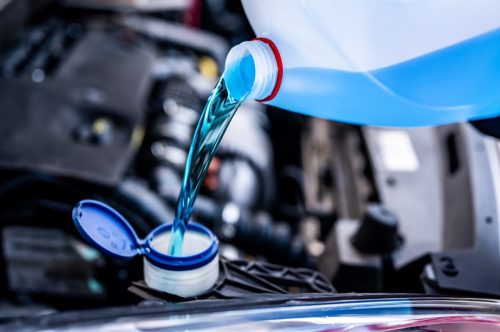
To avoid breaking down on the winter roads, Hunter Brabham, car expert and category manager at CarParts.com, advises everyone to check their car’s coolant or anti-freeze level before the weather grows colder.
“Top it off, if necessary,” he says. “Ensure the coolant is a proper mixture of antifreeze and water to prevent freezing and consider a coolant flush if it hasn’t been done recently to remove any contaminants.”
And that’s not all. Julie Bausch Lent, managing editor of the automotive news outlet Car Talk, says you should check and top off all of the fluids in your car, including the oil levels and wiper fluid.
“Also try to keep your gas tank as full as possible,” Lent adds. “The gas itself will not freeze, but the condensation in the line might, and that can cause issues. Keeping the tank as full as possible will mitigate this.”
RELATED: Farmer’s Almanac Predicts Extra Snowy Winter: What to Expect in Your Region.
3
Inspect all your lights.
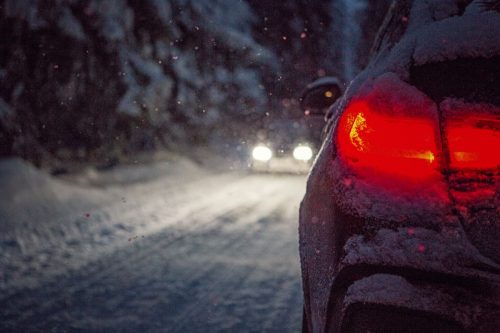
With the days getting darker and the possibility of inclement weather, it’s crucial that all your exterior car lights are working correctly, per Brabham.
“Functioning lights are important to increase visibility as it becomes harder for drivers to see obstacles like ice or fallen trees, in addition to oncoming traffic,” he shares.
According to Brabham, you should inspect your headlights, brake lights, turn signals, and emergency flashers.
“Taillights are just as important as headlights in winter months and when visibility is poor, making sure other drivers see you is just as important as seeing them,” he notes.
4
Have hazy headlights looked at by a professional.
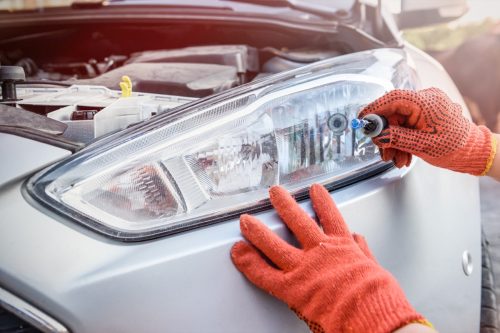
Even if your headlights are working correctly, they need to be as clear as possible during the cold season.
“Driving with hazy headlights reduces visibility and safety in harsh winter conditions,” Patterson cautions.
He says car owners should consult with a professional to determine what is causing the haziness in their headlights instead of trying to fix the problem themselves.
“Turning to DIY methods is a short fix that can cause long-term damage to your vehicle,” Patterson points out.
5
Check the condition of your tires.
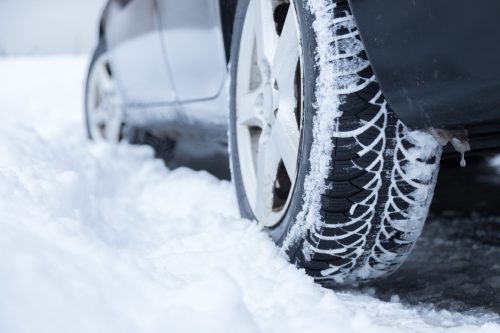
Your tires need to be in tip-top shape to safely get you through the winter.
“Check your treads. Make sure they are healthy and not worn down,” Lent advises. “Also check your tire pressure. You can lose one PSI of air pressure for every 10 degree drop in temperature.”
Those who live in an area that gets a lot of snow and ice should potentially think about getting new tires, too, according to Lent.
“If you have summer or all season tires, consider swapping them out for dedicated winter tires,” she says. “Winter tires improve your grip, handling and stopping ability in wintery conditions.”
RELATED: Why You Should Never Use Your GPS During a Snowstorm, Officials Warn.
6
Invest in certain helpful tools.
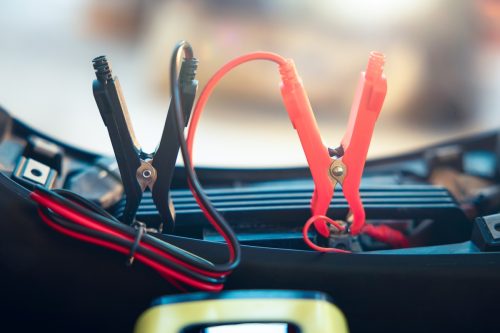
There is only so much you can prepare for, of course. Cars are known to be unpredictable, and you may face problems down the line regardless of what you do now. That’s why it is important to invest in certain helpful tools that you can keep in your vehicle in case you do end up finding yourself in trouble this winter.
According to Lent, some of the things you may want to buy include a portable tire inflator, de-icer lubricant, and a portable battery jump starter.
“Make sure to plan accordingly,” she says.
7
Get a good wash and wax.
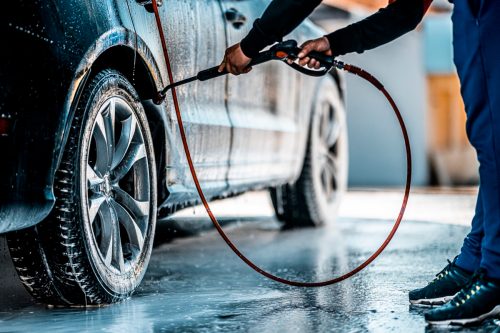
The last thing you should consider to winter-proof your vehicle is a good wash and wax, according to Lent.
“This is less for your safety and more for the longevity of your car,” she shares. The wax will help protect your paint, and regular washes throughout the season can help keep the undercarriage of your car from getting too damaged.
“It is important to consider the amount of salt and chemicals on the roadways in winter,” Lent says. “Driving through this mixture all winter can cause rust buildup on the undercarriage of your car.”
For more winter advice delivered straight to your inbox, sign up for our daily newsletter.